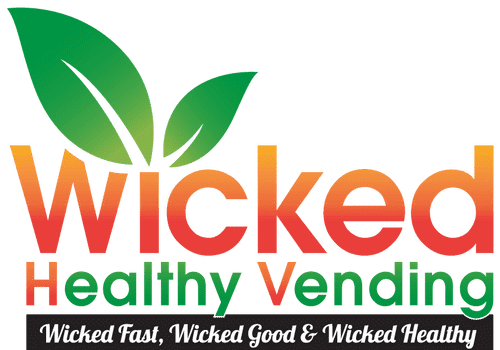MASSACHUSETTS VENDING MACHINE PUBLIC SCHOOL STANDARDS
DO YOUR SNACKS MAKE THE CUT?
Healthy food and drink options within Massachusetts schools are not only important, but have been the law since 2010 when the Commonwealth enacted the “Act Relative to School Nutrition” (the “Act”). The Act requires nutrition standards to be set in Massachusetts public schools. According to the Act, the goal is to ensure that public schools offer food and beverage choices to students that will enhance learning, contribute to their healthy growth and development, and cultivate life-long healthy eating behaviors. Moreover, the Act seeks to help prevent childhood obesity and possible issues later into adulthood, which has been a huge issue for our nation. The Act covers a la cart items, vending machines, school stores and snack bars. The Act does not apply to food and beverages already covered under the federal nutrition program, such as school meal programs.
To assist vendors and school personnel in determining which snacks and drinks comply with the Act, the Massachusetts Department of Public Health (the “DPH”) released revised guidance[1] that outlines standards, which include, among other things, portion size, fat, sugar, and salt content. The standards required by the Act are also set forth in the Massachusetts Competitive Foods and Beverages “At a Glance” Chart.[2]
In addition, the DPH enlisted the help of the Massachusetts Department of Elementary and Secondary Education and the John C Stalker Institute for Food and Nutrition (“JSI”), among others to develop the nutrition standards required by the Act. JSI published a list of acceptable foods, snacks and beverages (known as the A-List) and created a nutrition calculator to test whether products meet the nutrition criteria. The A-List is an up-to-date and ever-expanding list of snack and beverage products that meet the standards required by the Act. Items not currently on the A-List may be submitted to JSI for consideration to be added depending on whether the item meets the nutritional requirements.
Having healthy vending machines in schools will ensure that children will have healthy options that make the cut!! So how do snacks “make the cut” for the Massachusetts public nutrition standards?
- The snack must not exceed 200 calories
- Total fat may not be greater than 35% of calories
- Saturated fat must be less than10% of calories
- Trans fat must have less than or equal to 0.5 grams of trans fat
- Sodium must not exceed 200 mg.
- Sugar must be no more than 35% by weight
- Artificial sweeteners are not allowed
- No more than a trace of caffeine
- Grain-based products must be whole grain[3]
[1] (https://www.mass.gov/doc/healthy-students-healthy-schools-guidance-for-implementing-massachusetts-school-nutrition/download).
[2] https://www.mass.gov/doc/massachusetts-competitive-foods-and-beverages-at-a-glance-chart/download
[3] According to the guidance, whole grains are grains or the foods made from them that contain all the essential parts and naturally occurring nutrients of the entire grain seed. If the grain has been processed, the food product should deliver approximately the same balance of nutrients found in the original grain seed. For purposes of these standards, whole grain should be the primary ingredient by weight (i.e., whole grain listed first in the ingredient statement).
Does your favorite snack make the cut? To give you an idea, we provided this chart as an example of how similar snacks fared.
| Make the Cut? | Snack | Size | Calories | Why |
| Lays Classic | 1 oz | 160 | Fat>35% of total calories | |
| Baked Lays | .8z | 100 | ||
| Reduced Sugar Welch’s Fruit Snack | 1.5 oz | 70 | ||
| Fruit Gushers | .8 oz | 100 | Artificial Ingredients | |
| Cheez-It original | 1 oz | 140 | First ingredient is not a whole grain. Sodium over 200mg. | |
| Whole grain Cheez-It | 1 oz | 100 | ||
| Nature’s Valley Oats and Honey Bar | .7 oz | 100 | ||
| Oreo Cookie | 1 oz | 140 | Fat>35% of total calories; Saturated Fat is over 10% of calories |
Wicked Healthy Vending ensures that the options in our machines are within the guidelines and readily available for the children while they are at school. We take great pride in keeping them fully stocked as well as offering options for you to customize what’s available.
If you are interested placing one of our machines in your school, contact us today at [email protected].

